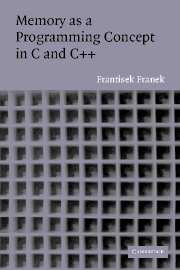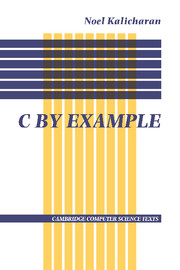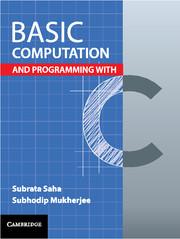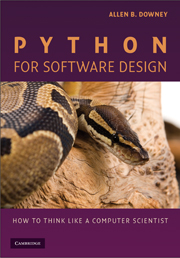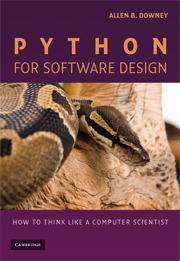Memory as a Programming Concept in C and C++
The overwhelming majority of bugs and crashes in computer programming stem from problems of memory access, allocation, or deallocation. Such memory related errors are also notoriously difficult to debug. Yet the role that memory plays in C and C++ programming is a subject often overlooked in courses and in books because it requires specialised knowledge of operating systems, compilers, computer architecture in addition to a familiarity with the languages themselves. Most professional programmers learn entirely through experience of the trouble it causes. This 2004 book provides students and professional programmers with a concise yet comprehensive view of the role memory plays in all aspects of programming and program behaviour. Assuming only a basic familiarity with C or C++, the author describes the techniques, methods, and tools available to deal with the problems related to memory and its effective use.
- Builds a coherent picture of memory role in C/C++ programs not found in any other single book
- Deals with issues that can lead to expensive and hard to debug errors
- Describes many subtle yet crucial aspects of memory handling such as constructors and destructors, and operators new and delete in C++
Product details
April 2011Adobe eBook Reader
9780511838620
0 pages
0kg
This ISBN is for an eBook version which is distributed on our behalf by a third party.
Table of Contents
- 1. Introduction
- 2. From source file to executable file
- 3. Variables and objects, pointers and addresses
- 4. Dynamic allocation and deallocation of memory
- 5. Functions and function calls
- 6. One-dimensional arrays and strings
- 7. Multi-dimensional arrays
- 8. Classes and objects
- 9. Linked data structures
- 10. Memory leaks and their debugging
- 11. Programs in execution - processes and threads.

